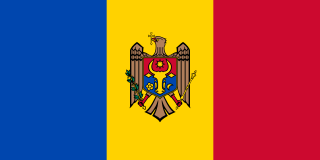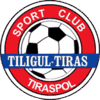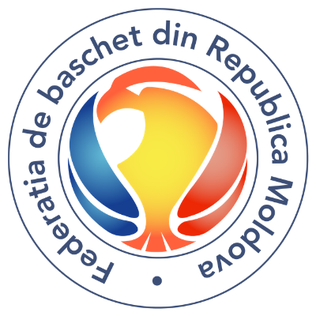Related Research Articles

The politics of Moldova take place in a framework of a parliamentary representative democratic republic,wherein the prime minister is the head of the Government of Moldova,and a multi-party system. The President of Moldova has no important powers. The government exercises executive power while the legislative power is vested in the Parliament. The judiciary is independent of the executive and the legislature. The position of the breakaway region of Transnistria,relations with Romania and with Russia,and integration into the EU dominate political discussions.

Moldova,officially the Republic of Moldova,is a landlocked country in Eastern Europe,on the northeastern corner of the Balkans. The country spans a total of 33,483 km2 (12,928 sq mi) and has a population of approximately 2.42 million as of January 2024. Moldova is bordered by Romania to the west and Ukraine to the north,east,and south. The unrecognised breakaway state of Transnistria lies across the Dniester river on the country's eastern border with Ukraine. Moldova is a unitary parliamentary representative democratic republic with its capital in Chișinău,the country's largest city and main cultural and commercial centre.
Moldovan or Moldavian is one of the two local names for the Romanian language in Moldova. Moldovan was declared the official language of Moldova in Article 13 of the constitution adopted in 1994,while the 1991 Declaration of Independence of Moldova used the name Romanian. In 2003,the Moldovan parliament adopted a law defining Moldovan and Romanian as glottonyms for the same language. In 2013,the Constitutional Court of Moldova interpreted that Article 13 of the constitution is superseded by the Declaration of Independence,thus giving official status to the name Romanian. The breakaway region of Transnistria continues to recognize "Moldovan" as one of its official languages,alongside Russian and Ukrainian. Ukraine also continued until recently to make a distinction between Moldovan and Romanian,with one village declaring its language to be Romanian and another declaring it to be Moldovan,though Ukrainian officials have announced an intention to remove the legal status of Moldovan. On 16 November,the Ministry of Education and Science of the Ukrainian government stated that it has initiated steps to abolish the Moldovan language and to replace it with Romanian. On 13 January 2024,Ukrainian newspaper Dumska reported that the Ukrainian Ministry of Education and Science had announced all 16 schools in Odesa Oblast teaching "Moldovan" had dropped the term in favor of Romanian. On 16 March 2023,the Moldovan Parliament approved a law on referring to the national language as Romanian in all legislative texts and the constitution. On 22 March,the president of Moldova,Maia Sandu,promulgated the law.

Transnistria,officially known as the Pridnestrovian Moldavian Republic (PMR),is a breakaway state internationally recognized as part of Moldova. Transnistria controls most of the narrow strip of land between the Dniester river and the Moldova–Ukraine border,as well as some land on the other side of the river's bank. Its capital and largest city is Tiraspol. Transnistria is officially designated by the Republic of Moldova as the Administrative-Territorial Units of the Left Bank of the Dniester or as Stînga Nistrului.

Gagauzia or Gagauz-Yeri,officially the Autonomous Territorial Unit of Gagauzia (ATUG),is an autonomous territorial unit of Moldova. Its autonomy is intended for the local Gagauz people,a Turkic-speaking,primarily Orthodox ethnic group.

Fotbal Club Sheriff Tiraspol,commonly known as Sheriff Tiraspol or simply Sheriff,is a professional football club based in Tiraspol,a city located in the unrecognised breakaway state of Transnistria,that plays in the Super Liga,the top tier of Moldovan football. Founded in 1997 as Tiras Tiraspol and rebranded the following year as Sheriff,it quickly established itself within Moldovan football.

FC Tiraspol was a Moldovan football club based in Tiraspol,Moldova. They played in the Divizia Naţională,the top division in Moldovan football.

FC Nistru Otaci was a Moldovan football club based in Otaci,Moldova. The club was founded on 17 August 1953. It was dissolved in 2017.
This article gives an overview of liberalism in the Republic of Moldova. In the years from 1918 through 1940 and 1941 through 1944,what is today the Republic of Moldova was part of Romania,so the Romanian political parties were active in Moldova. It is limited to liberal parties with substantial support,principally those with a history of representation in parliament.

The Moldova national football team represents Moldova in men's international football and is administered by the Moldovan Football Federation,the governing body for football in Moldova. Moldova's home ground is Zimbru Stadium in Chișinău and their head coach is Serghei Cleșcenco. Shortly before the break-up of the Soviet Union,they played their first match against Georgia on 2 July 1991.

The politics of Transnistria,a de facto independent state situated de jure within the Republic of Moldova in Eastern Europe,take place in a framework of a semi-presidential republic,whereby the President of Transnistria is head of state and the Prime Minister of Transnistria is head of government. Executive power is exercised by the government. Legislative power is vested in both the government and parliament. Formally,Transnistria has a multi-party system and a unicameral parliament,called the Supreme Council. The president is elected by popular vote. The latest parliamentary elections were held in November 2020.
Fotbal Club Zimbru Chișinău,commonly known as Zimbru Chișinău or simply Zimbru,is a Moldovan professional football club based in Chișinău,which competes in the Super Liga,the highest tier of Moldovan football.

SC Tiligul-Tiras Tiraspol was a Moldovan football club based in Tiraspol. They played in the Divizia Națională,the top division in Moldovan football. Their home stadium was Stadionul Municipal.

The condition of human rights in Moldova has come under scrutiny since 2002,and human rights organizations within Moldova and around the world have spoken out against what they feel to be unfair suppression of the independent media,as well as other abuses.

The Moldova men's national basketball team represents Moldova in international basketball. The team is governed by the Basketball Federation of Moldova.

The Moldova national under-21 football team represents Moldova in international football at this age level and is controlled by the Moldovan Football Federation,the governing body for football in Moldova. The team is considered to be the feeder team for the senior Moldovan national football team. The team competes to qualify for the UEFA European Under-21 Championship,held every two years. Since the establishment of the Moldovan under-21 team,the under-21 side has never reached a final tournament of the UEFA European Under-21 Championship,but has produced many players,who have become regular internationals for the senior side. The team is coached by Ștefan Stoica.
The Moldova national under-17 football team represents Moldova in international football at this age level and is controlled by the Moldovan Football Federation,the governing body for football in Moldova.
The Moldova national under-19 football team represents Moldova in international football at this age level and is controlled by the Moldovan Football Federation,the governing body for football in Moldova. The team competes to qualify for the UEFA European Under-19 Championship held every year. Since the establishment of the Moldovan under-19 team,the under-19 side has never reached a final tournament of the UEFA European Under-19 Championship. Players born on or after 1 January 2006 are eligible for the 2025 UEFA European Under-19 Championship qualification. They are currently coached by Serghei Cebotari.

This page shows a list of results of Moldova national football team from the team's first match until the end of 1999.
References
- ↑ "Communist Political Vendettas in Moldova". The Jamestown Foundation.
- ↑ "Newsline - February 20, 2002". Radio Free Europe.